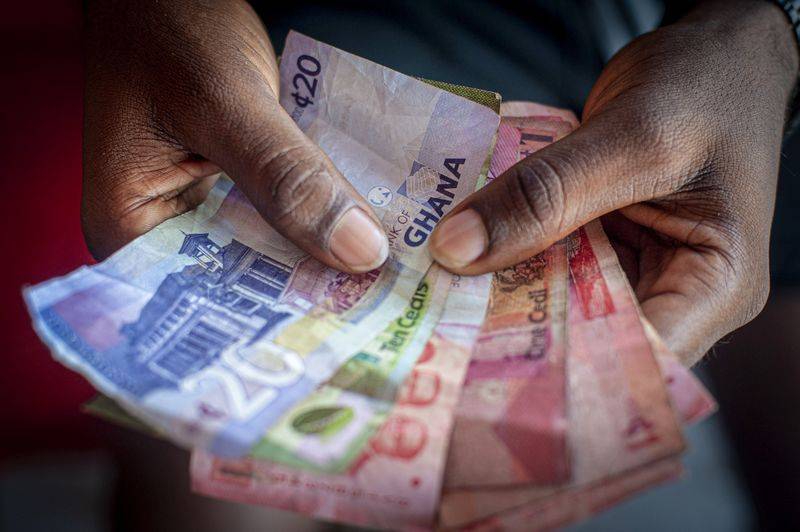Ghana Cedi Emerges as Top Global Currency Amid Inflation Relief
The Ghana cedi has been recognized as the world's best-performing currency this month, appreciating nearly 16% against the US dollar since the beginning of April 2025, according to Bloomberg. This remarkable rally has contributed to easing inflationary pressures, resulting in Ghana's lowest inflation rate in eight months. Currently, the cedi is trading at GH₵13.4 against the dollar.
Consumer price inflation decreased to 21.2% in April, down from 22.4% in March, as reported by Government Statistician Alhassan Iddrisu in Accra on Wednesday. Monthly price increases slowed to 0.8%, primarily due to reduced import costs linked to the cedi's strength. Non-food inflation fell to 17.9% from 18.7%, while food inflation also saw a decline, dropping to 25% from 26.5%. Iddrisu confirmed that the cedi's rally played a significant role in alleviating inflationary pressures by lowering import costs.
Bloomberg data indicates that since early April, the cedi has outperformed all global currencies against the US dollar, boosting consumer confidence and reducing the cost of imported goods. Despite this progress, analysts suggest that the Bank of Ghana is unlikely to hasten interest rate reductions in its upcoming policy meeting. Dr. Agyapomaa Gyeke-Dako, an economist and senior lecturer at the University of Ghana Business School, noted that the bank tightened its policy in the previous meeting to manage excess liquidity, implying that it may not be ready to lower the monetary policy rate just yet due to potential inflationary threats from rising utility prices.
The Monetary Policy Committee (MPC) surprised markets in March with a 100 basis-point hike, raising the key rate to 28% as part of its strategy to stabilize prices. The central bank has indicated that it will continue to monitor inflation trends before considering any easing of its stance. Mark Bohlund, a senior credit analyst at REDD Intelligence, cautioned that easier monetary conditions could reignite inflationary pressures, suggesting that the Bank of Ghana may refrain from near-term rate cuts.
However, there is cautious optimism for potential rate relief later in the year if disinflation trends persist. Governor Johnson Asiama stated that as the monetary authority reviews upcoming inflation readings and observes declines, the committee will reassess the possibility of gradually easing its policy stance.
Ghana's inflation has remained above the central bank's target range of 6% to 10% since September 2021, following a debt crisis that led to a sharp depreciation of the cedi and skyrocketing import costs. The MPC forecasts that inflation could decrease to around 16% by the end of 2025 and gradually return to the target range by the second quarter of 2026.
The International Monetary Fund (IMF), which is collaborating closely with Ghana under a support program, also expressed optimism about future inflation trends. Stéphane Roudet, IMF Mission Chief to Ghana, stated during a recent briefing in Washington that they are confident inflation will decrease in the coming months toward program objectives.
As Ghana continues its efforts to restore economic stability, the resurgence of the cedi stands out as a symbol and instrument of recovery.




No comments yet
Be the first to share your thoughts!